Retro Replay Review
Gameplay
Turbo Learning: Mega Math offers a straightforward yet engaging approach to introducing children to the fundamentals of algebra. The core gameplay revolves around three distinct mini-games, each designed to reinforce a particular algebraic concept through hands-on problem solving. Young players will find themselves balancing equations, deciphering variable values, and matching algebraic expressions within a colorful, interactive interface.
(HEY YOU!! We hope you enjoy! We try not to run ads. So basically, this is a very expensive hobby running this site. Please consider joining us for updates, forums, and more. Network w/ us to make some cash or friends while retro gaming, and you can win some free retro games for posting. Okay, carry on 👍)
Each mini-game transitions smoothly into a short quiz or test that measures a student’s understanding before allowing them to progress. This checkpoint system not only ensures reinforcement of the material but also provides a sense of accomplishment as learners complete each level. Hints and visual cues are available for struggling players, making the difficulty curve approachable for different skill levels.
The control scheme is intentionally simple: point-and-click mechanics guide players through equations, drag-and-drop interactions help match terms, and multiple-choice questions round out the experience. This simplicity keeps the focus squarely on math concepts rather than on mastering complex controls, which is ideal for younger audiences who may be new to computer-based learning.
Despite its educational focus, Mega Math keeps engagement high with timed challenges, bonus stars for perfect scores, and playful sound effects that celebrate correct answers. While veteran gamers may find the pacing deliberate, parents and educators will appreciate the measured progression that scaffolds learning in bite-sized, rewarding stages.
Graphics
Graphically, Turbo Learning: Mega Math embraces the early ’90s Sierra art style, complete with chunky pixel characters and bright, saturated backgrounds. The mini-games each sport a unique theme—ranging from a laboratory setting to a futuristic cityscape—providing visual variety as children advance through algebraic levels. The environments are charmingly detailed for an educational title, with animated props adding life to each stage.
The user interface is clean and uncluttered, prioritizing large, legible fonts and clear icons that guide players through equations and quizzes. Color coding helps distinguish variables, constants, and operation symbols, reducing confusion and easing the learning process. Although modern gamers might find the resolution and animations rudimentary by today’s standards, the retro aesthetic can evoke nostalgia for adult supervisors.
Character sprites—such as the friendly “Math Mentor” mascot—offer encouraging facial expressions and gestures when players succeed or need redirection. These small touches foster an upbeat atmosphere, making math practice feel less like a chore. Background music is upbeat without being distracting, while sound effects for correct and incorrect answers reinforce positive learning behaviors.
Overall, the graphics do not rely on cutting-edge technology but instead focus on clarity, approachability, and a hint of whimsy. For its intended audience, the visual design strikes exactly the right balance between educational clarity and engaging presentation.
Story
While Turbo Learning: Mega Math is primarily an educational tool, it weaves a light narrative thread to motivate young learners. The premise casts players as “Math Adventurers” who must restore balance to the Land of Numbers, a whimsical realm thrown into chaos by misplaced variables and rampant equations. This storyline provides context for each mini-game and test, turning algebraic practice into a heroic quest.
Between levels, brief comic-style panels show the Math Adventurers interacting with quirky characters—like the overly dramatic Equation Queen or the mischievous Fraction Imp—who explain algebraic challenges in conversational, age-appropriate language. These interludes break up the gameplay and help reinforce why mastering each concept is crucial to progressing the adventure.
Though the narrative is not deeply complex, it succeeds in giving players a clear goal: rescue the Land of Numbers by solving algebraic puzzles. This sense of purpose can be especially motivating for children who thrive on story-driven objectives. Moreover, the lighthearted tone ensures that the focus remains on fun and discovery rather than high-stakes drama.
In an educational title, the inclusion of any storyline is a bonus, and Mega Math’s simple plot serves its purpose well. It provides continuity between lessons, strengthens thematic cohesion, and adds a playful dimension that sets the game apart from purely drill-based software.
Overall Experience
Turbo Learning: Mega Math stands out as a niche gem in Sierra’s catalog, combining classic Sierra charm with solid educational design. Its three mini-games and accompanying tests create a well-structured learning path that gradually builds a child’s confidence in basic algebra. The game’s pacing and feedback system make it suitable for home use, classrooms, and homeschooling environments alike.
The presentation strikes a nostalgic chord for parents familiar with early Sierra titles, while the polished interface and cheerful audio ensure modern young players stay engaged. The minimal hardware requirements mean the game runs smoothly on a wide range of systems, making it accessible even on older computers that schools or families might have in storage.
While the scope is limited—there are only so many ways to present simple algebra—the game does a commendable job of reinforcing core concepts without overwhelming its audience. Those seeking more advanced math challenges may quickly outgrow Mega Math, but as an introduction to variables and equation solving, it remains effective and entertaining.
In conclusion, Turbo Learning: Mega Math is an underappreciated educational title that delivers clear, interactive math instruction wrapped in a playful package. Parents and educators looking for an accessible, story-driven way to teach pre-algebra concepts will find this Sierra classic to be a valuable addition to their learning toolkit.
 Retro Replay Retro Replay gaming reviews, news, emulation, geek stuff and more!
Retro Replay Retro Replay gaming reviews, news, emulation, geek stuff and more!
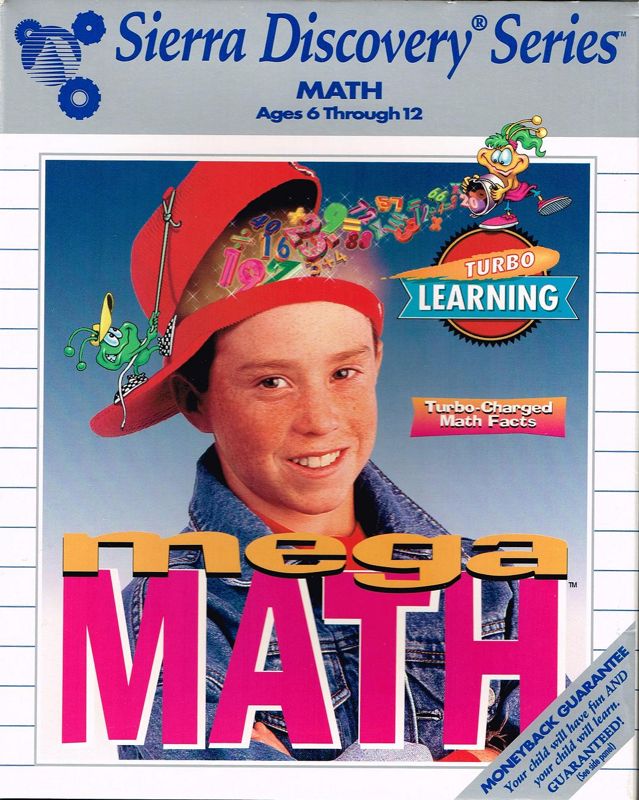

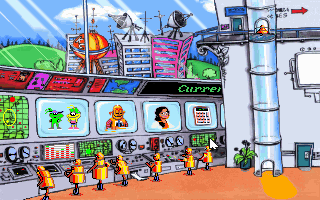
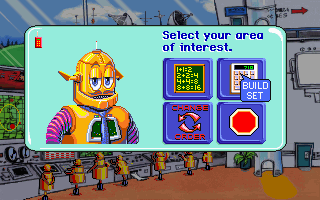
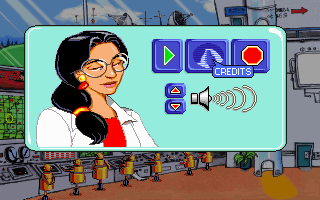
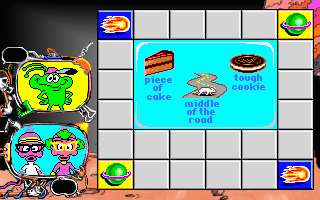



Reviews
There are no reviews yet.